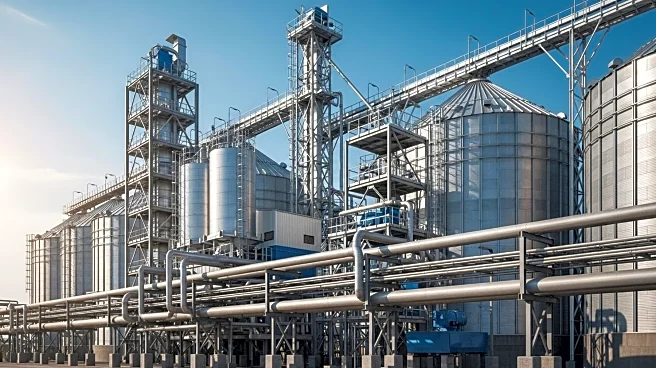What's Happening?
The African Development Bank (AfDB) is supporting Aliko Dangote's $3 billion fertilizer plant in Ethiopia, which is set to begin production by 2028. This initiative aims to address Ethiopia's heavy reliance on imported fertilizers, which currently accounts for over 90% of its needs. The plant, located in Gode, is expected to produce 3 million metric tons of urea annually, meeting Ethiopia's import requirement and serving regional markets in Kenya, Somalia, and Djibouti. The project aligns with the African Union's goals of reducing dependency on external inputs and fostering localized production. It also supports Ethiopia's Homegrown Economic Reform II framework by creating jobs and stimulating economic activity in underdeveloped regions.
Why It's Important?
The establishment of the fertilizer plant is significant for Ethiopia and the broader African region as it promises to stabilize fertilizer prices for smallholder farmers, who make up 70% of Ethiopia's agricultural workforce. By reducing foreign exchange outflows and enhancing regional trade, the project could bolster Ethiopia's economic sovereignty and reduce vulnerability to geopolitical shocks. The plant's integration into Africa's trade dynamics, facilitated by the African Continental Free Trade Area, could undercut global suppliers and enhance regional influence. This initiative exemplifies strategic investment in infrastructure, aligning with national and continental priorities, and highlights growing opportunities in Africa's industrialization and food security sectors.
What's Next?
The success of the Dangote fertilizer plant will depend on its ability to integrate into Africa's evolving trade dynamics and address challenges such as affordability for smallholder farmers and competition from global players. Ethiopia's recent $3 billion deal with Dangote offers a blueprint for balancing domestic needs with regional ambitions. Complementary policies, such as subsidies or microfinance mechanisms, may be required to ensure affordability and maximize the plant's impact. Efficient distribution networks will also be crucial to the project's success.
Beyond the Headlines
The fertilizer plant represents a cornerstone of Africa's transition toward self-reliance, with implications for regional trade and geopolitical stability. By stabilizing supply chains and reducing import dependency, the initiative could drive the continent's next wave of economic transformation. The project underscores the importance of strategic investment in infrastructure and highlights the potential for Africa to leverage its natural resources for economic growth.









